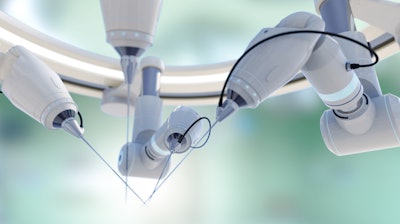
To stay competitive in a crowded and ever-evolving industry, medical device manufacturers must consistently deliver value in two ways. The first is through innovative products that improve safety and efficacy to the patient. The second is by maximizing cost-effectiveness over the product lifecycle from development and launch through scale-up and mass production. Suppliers play a central role in a manufacturer’s ability to achieve these goals, but many companies do not use these strategic partnerships to their full advantage or bring in these experts into the process too late to meaningfully influence the effectiveness and efficiency of product development.
Suppliers are often contacted when customers have decided they need a specific product or component or when there is an immediate need and the timeline to launch is short. Working in this manner severely limits the opportunities for innovation or problem solving and makes enhancing production efficiencies by exploring machinery or services like sub-assembly virtually impossible.
Integrating major suppliers early in the new product development process offers numerous benefits and can result in ideas that neither party has considered before. In this article, we’ll take a closer look at these advantages and the additional value that total solutions providers can offer.
The upside of early supplier engagement
One of the primary benefits of bringing suppliers into the development process early is the elbow room it provides for creativity. This is especially true if a manufacturer needs help solving a problem. The key strategic shift occurs when supplier partners can collaborate with the manufacturer to develop performance specifications, rather than being invited to bid on meeting existing product specifications. For example, a fastener component supplier might recommend using a different resin to improve product performance or reduce cost – or recommend an entirely different fastener type that would be more suitable for the application or enhance patient use. In addition, in cases where standard materials might not be sufficient to meet a specific industry or customer requirement, the supplier can work with its own supply chain partners to develop an innovative alternative.
Early collaboration with suppliers also enables more efficient and effective design and development in compliance with FDA regulations and the ISO 13485 standard. Supplier partners can accelerate design verification (i.e., did you design the device right?) and validation (i.e., did you design the right device?) of the medical device. For example, ensuring biocompatibility of the materials and subassemblies reduces the risk of biocompatibility failure in the completed device. An additional benefit of early collaboration is supplier design for manufacturing and resulting design transfer to device manufacturing is much faster and trouble-free.
Maximize results with the right supply pPartner
Medical device manufacturers can gain even more value by aligning themselves with suppliers that are total solutions providers versus those that provide a singular product or service. Suppliers that take the total solutions approach often bring best practices and market knowledge outside the industry customers know best and can tap into a more diverse supply chain, enhancing opportunities for innovation. These companies also prioritize solution development over selling a specific product or part. In other words, they listen to the challenges and goals of their customers with an open mind and commit to finding high-impact and lasting solutions.
As medical device manufacturers seek to up their innovation game and drive competitiveness and profitability, enhancing how they work with suppliers can yield critical advantages. One easy change manufacturers can make is to bring suppliers into the product development process early so they can fully utilize their knowledge and expertise to problem solve, enhance production efficiencies and successfully launch products that can be built for years to come. The big picture benefits awaiting manufacturers that do this right – including cost management, improved manufacturability, reduced risk and shortened development times – are well worth the investment.
Keith Glaser is the director of medical & hygiene at YKK (U.S.A.) Inc.






















